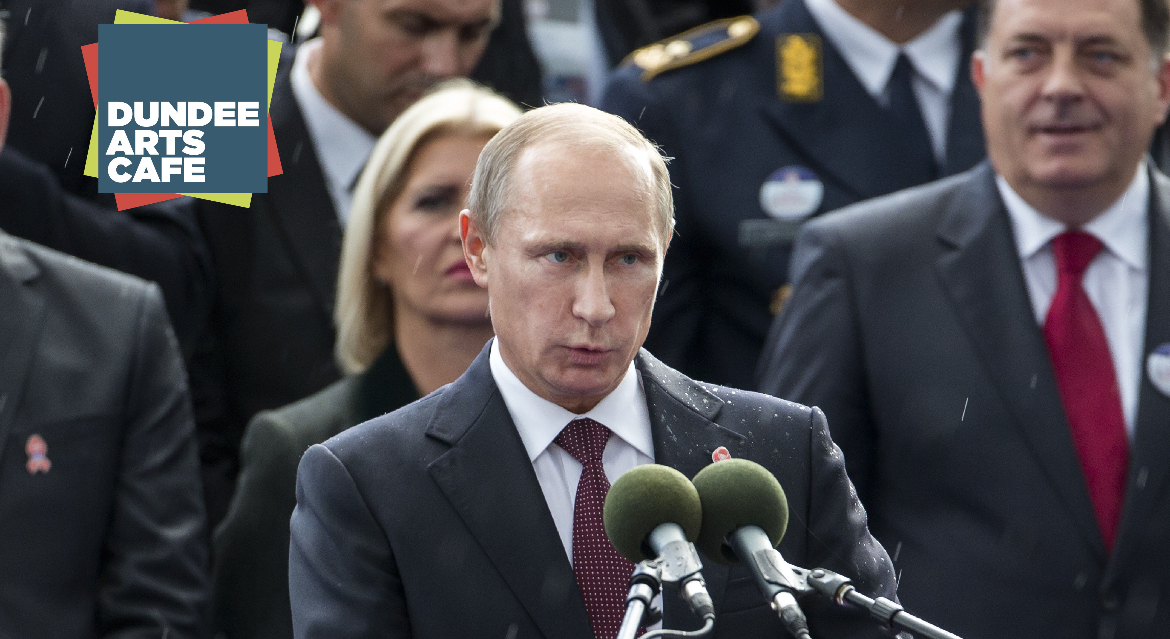Putin’s popularity put under the microscope
Published On Mon 15 Apr 2019 by Jonathan Watson

Vladimir Putin’s presidency of Russia prevents potentially dangerous political elements from seizing control of the country, a University of Dundee expert has said.
Professor Cameron Ross, Research and Scholarship Coordinator in Politics and International Relations at Dundee, says that the Russian premier’s authoritarian regime is not fully appreciated by Western governments.
He will examine the leadership of the Russian president as host of the next Dundee Arts Café, which takes place in the McManus Café at 6pm on Tuesday 16 April.
While outcast by many nations, Professor Ross believes that the West could do worse than to have Vladimir Putin in the Kremlin.
“Putin is a pragmatist not an ideologue, and this suits the West,” he said.
“The last thing that the West wants is a Russian ultra-nationalist in power, and while Putin uses nationalism in his promotion, he manages to keep ultra-nationalist elements within the country at bay.”
A former KGB agent in the era of the Soviet Union, Vladimir Putin was first elected president in 2000, winning his second term four years later. Barred from standing a third consecutive time by the Russian constitution, he served as Prime Minister from 2008-2012, before winning his third and fourth terms as President in 2012 and 2018.
Lauded at home for reasserting Russia on the world stage and for overseeing significant improvements in the standard of living, President Putin has been widely criticised overseas for his absolutist style of rule, restricting civil liberties, clamping down on press freedom, and silencing political opposition.
Despite these criticisms, Professor Ross says that there is no likely collapse in Putin’s high opinion poll ratings.
“Putin remains popular in Russia because he adopts policies that are largely in tune with the population,” he added.
“While the annexation of Crimea in 2014 was criticised in the West, his ratings at home soared by levels that politicians here could only dream of. Although economic sanctions in light of that event are beginning to have an impact, Putin has also been able to provide Russians with economic security, which has helped to maintain his popularity.
“It is easy to point to his meddling in elections, and that is why opinion polls are often far better barometers of popularity, however, these simply suggest that there has been no need for any interference in elections, as they indicate Putin remains far more popular than any of the opposition.
“His leadership is fascinating to study and I hope that anybody attending Dundee Arts Café will leave with a greater understanding of Vladimir Putin’s presidency and how he interacts with the people of Russia.”
‘Russian Politics under Putin’, will take place at 6pm on Tuesday 16 April in the McManus: Dundee’s Art Gallery and Museum. The event is free and non-bookable but early arrival is advised.
For media enquiries contact:
Jonathan Watson
Media Relations Officer
University of Dundee
Nethergate, Dundee, DD1 4HN
Tel: +44 (0)1382 381489
Email: j.s.watson@dundee.ac.uk